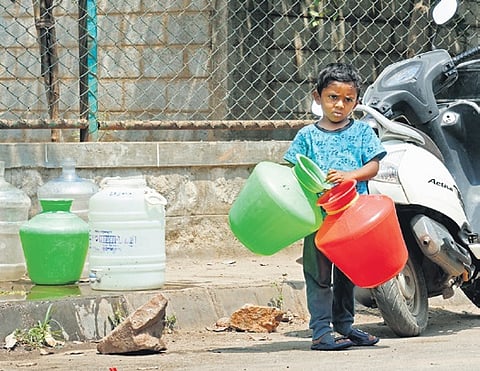

BENGALURU: A Council on Energy, Environment and Water (CEEW) study shows that Karnataka, Punjab, and Haryana lead in used water management. Further, Bengaluru and Surat in Gujarat top the list.The study titled ‘Enabling Circular Economy in Used Water Management in India - A Municipal Index for Assessing Urban Local Bodies’ Performance’ released on March 12 was made based on 2021 data.
The report stated that only 28% of India’s 72,000 million litres of used water is treated. With rising urban water demand and dwindling groundwater table, urban local bodies (ULBs) across the country need to scale up the treatment and reuse of used water for non-potable purposes. Lack of financial planning and investments for used water management is a concern in 90% of ULBs, the report added.
The CEEW report created a Municipal Used Water Management (MUWM) Index, which focused on 503 ULBs in 10 states—Andhra Pradesh, Chhattisgarh, Gujarat, Haryana, Jharkhand, Karnataka, Madhya Pradesh, Punjab, Rajasthan, and West Bengal—that have adopted treated used water reuse policies. Through the index, they were ranked on five themes: finance, infrastructure, efficiency, governance, and data and information.
Surat Municipal Corporation and BBMP emerged as outstanding performers in the CEEW index, with dedicated action plans for used water management in areas including infrastructure works.
At the state level, Haryana and Karnataka take the lead, with Punjab and Rajasthan following closely, said the report.The CEEW also said that the majority of ULBs needed to adopt a more comprehensive approach to used water management.
“Though Karnataka emerges as a front-runner, it is critical to note that there is a long road to go with no state achieving a full score. As Bengaluru runs out of freshwater, reusing used water to its full potential for non-potable purposes will be key in the future,” said Nitin Bassi, senior programme lead, CEEW.
He added that the study area in Bengaluru focused on the ULB limits, where the Cauvery water connection was supplied, and not in the areas listed in the 110 villages.